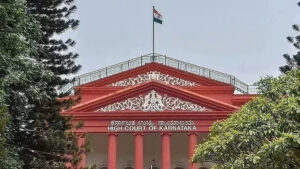In a startling case that exposed the disturbing ease with which public confidence can be manipulated, a man in Varanasi was recently arrested for impersonating a police officer. Armed with fake appointment letters and forged identification documents, the accused had been masquerading as an official authority figure, deceiving citizens and exploiting the prestige of the police force. The incident has sent shockwaves through law enforcement circles and raised urgent questions about the verification mechanisms in place to prevent such dangerous impersonations.
The Arrest That Shook Varanasi
The accused had reportedly been parading around various public areas in Varanasi in full police attire, complete with a name tag, badge, and identity card. Locals who interacted with him had no reason to doubt his legitimacy. He was confident, assertive, and even issued warnings or threatened minor penalties to those who questioned him—typical behavior expected from an officer on duty.
His downfall began when a real police officer grew suspicious after noticing irregularities in his conduct and uniform details. Upon further inquiry, it was discovered that the accused lacked official police credentials and failed to produce legitimate identification upon request. He was detained on the spot and a subsequent search revealed forged appointment letters, fake police ID cards, and a duplicate badge—all crafted with astonishing precision.
The Modus Operandi
According to investigators, the impersonator had studied the structure, demeanor, and operational language of the police in great detail. He had created counterfeit documents that closely resembled actual appointment letters issued by the Uttar Pradesh Police Department. These fake letters, along with his fabricated ID card and badge, gave him a false air of legitimacy that helped him move freely and intimidate citizens.
His primary motive appeared to be gaining undue respect and influence in his local area. However, authorities are exploring the possibility of extortion or misuse of authority for financial or personal gain. Several individuals have already come forward, reporting that they had interactions with him—some were even threatened with legal action for minor public infractions.
A Deeply Alarming Breach of Trust
Impersonating a police officer is not merely a personal crime—it is a direct attack on public trust in law enforcement. Citizens rely on the authenticity of uniforms and ID cards to identify and comply with legal authority. When someone uses forged credentials to step into that role, the impact is not just psychological, but also operational.
The ability to command obedience or fear simply through appearance puts immense power in the hands of the wrong individuals. The accused’s actions could have endangered lives, disrupted actual police operations, and created unnecessary fear among the people he falsely supervised or harassed.
How Did He Obtain the Forged Materials?
Investigators are probing the source of the forged appointment letters and ID cards. There is growing concern that the accused did not act alone, and might be part of a wider network that specializes in creating and distributing fake government documents. These criminal groups are known to use high-resolution printers, graphic design software, and data leaks to replicate official templates.
The forensic examination of his seized laptop and mobile phone has begun, with authorities hoping to uncover templates, email trails, or communication with document forgers. In similar past cases, these networks have operated through the dark web or anonymous Telegram channels, offering fake documents for everything from employment to educational qualifications.
Legal Implications
The accused has been booked under multiple sections of the Indian Penal Code, including:
-
Section 170 (Personating a public servant)
-
Section 465 (Forgery)
-
Section 468 (Forgery for purpose of cheating)
-
Section 471 (Using as genuine a forged document)
If convicted, he could face serious jail time, alongside additional penalties for misleading the public and potentially engaging in extortion under false pretenses.
Need for Stronger Verification and Public Vigilance
This incident underscores the necessity of tightening identity verification processes, not only within police departments but across all public service sectors. Police departments must ensure that all officers’ credentials are easily verifiable in real time. QR-coded IDs, mobile verification apps, and centralized databases accessible to the public could help mitigate such impersonation risks.
Additionally, public awareness campaigns should be run to educate citizens on how to identify legitimate police officers. Knowing what questions to ask, what credentials to check, and how to report suspicious behavior could empower citizens and prevent similar incidents.
A Symptom of a Larger Problem
The Varanasi case is far from isolated. Across India, cases of impersonation involving government officials—be it revenue officers, railway ticket inspectors, or municipal employees—have become increasingly common. What ties many of them together is the use of expertly forged documentation and the exploitation of systemic loopholes in verification.
The booming underground market for fake IDs, appointment letters, and even university degrees thrives on a lack of awareness and the slow pace of administrative modernization. Unless countermeasures are introduced swiftly, such incidents will continue to surface, eroding public faith in government institutions.
Conclusion
The arrest of the impersonator in Varanasi may have averted further exploitation, but it shines a light on a troubling issue that demands immediate attention. Trust, once broken, is hard to regain—especially when it involves those who wear the uniform of authority. Strengthening verification protocols, cracking down on document forgery syndicates, and fostering public vigilance are not optional—they are necessary steps in restoring the sanctity of our public institutions. The Varanasi case should serve as a critical lesson in ensuring that such deception is never allowed to take root again.
Our Services – FACTS Transcripts
We at FACTS Transcripts assist in various services, including:
- Mark Sheet Transcripts
- E-Transcripts
- Duplicate Mark Sheets & Degree Certificates
- Medium of Instructions Certificates
- Attestations
- HRD Attestation / Apostille Services
- ECA (Educational Credentials Assessment)
Trusted by leading global verification organizations, including WES, IQAS, PEBC, NDEB, NASBA, CAPR, NZQA, ICAS, NCESS, ICES, ECE, eduPASS, ACEI, GCEUS, Comparative Education Services, NNAS, NCA, SAQA, QMAS, FORAC, Australian Pharmacy Council, and more.
FACTS Transcripts – The preferred choice for university document verification worldwide. We ensure a hassle-free process for obtaining your transcripts.









